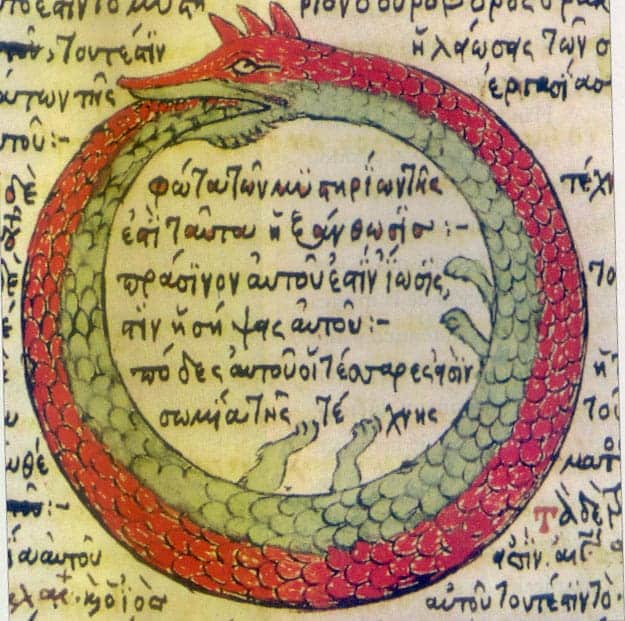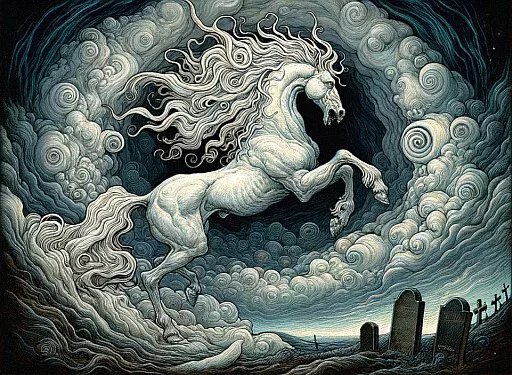“My beloved is white and vermilion,
Recognizable among a thousand and one.
His body is gold, pure gold,
His curly palm clusters,
Black as the raven.”
(Song of Songs, 5:10)
I rode a white beast.
He took me in front of a grave,
beside the river,
Among dull noises.
There, I saw the spiral.
I saw her return,
Like the embrace of a psychotic,
to hold me
In the tiny center that does not exist.
Then the mane,
invigorated,
Has turned his flight to forgotten times.
My grandmother’s countryside
And that of a friend who never was such.
The spiral tightens,
annihilates,
hopelessly returns
Like the Sun above the Moon.
And I wait.
And waiting, I go up.
I go up where the night,
Black only to those who do not see it,
gets drunk,
Tells meaningless stories,
is moved,
He throws up his dinner,
And, ceaselessly, he laughs.
Ride
As I watch it.
And when I close my eyes,
spring sounds screech,
among the frozen sighs
Of the infernal white steed,
skewered, (but alive),
In an immense vintage music box.
The night laughs.
Ride
mind, I observe it.
Deposited for legal protection with Patamu: certificate
Philosophical-literary considerations
Nietzsche‘s concept of eternal return is one of his most intriguing and challenging ideas. According to Nietzsche, eternal return suggests that everything in the universe repeats endlessly, including our lives and experiences. This concept challenges conventional notions of time and raises profound questions about the meaning and purpose of existence.
Nietzsche conceived the concept of eternal return as a radical idea to address the human tendency to escape the present moment. He believed most people run away from their lives, constantly seeking distractions or looking to the future rather than embracing the present. By introducing the concept of eternal return, Nietzsche aimed to challenge this mindset and encourage people to live more authentically.

For Nietzsche, eternal return was not a literal repetition of events but a thought experiment. He imagined that a demon would visit us and reveal that we would have to relive our lives again and again, with every detail remaining the same. This notion forced individuals to reflect on their actions and choices, instilling a sense of responsibility for their existence.
The concept of eternal return also has a significant existential aspect. Nietzsche argued that living with the awareness of eternal return could lead to the affirmation of life itself. Instead of considering life futile or meaningless, individuals who embraced this idea strived to make every moment count, taking responsibility for their actions and finding value in their experiences.
However, Nietzsche recognized the immense challenge posed by the eternal return. The concept requires acceptance of the tragedy and affirmation of the suffering of life as an integral part of the human experience. Only those who can embrace the full spectrum of existence, including its difficulties and joys, can fully understand and live following the eternal return.
Overall, Nietzsche’s concept of eternal return offers a philosophical framework that encourages individuals to confront their lives and live with intention. By embracing the idea of infinite recurrence, one can cultivate a deeper appreciation for the present moment, take responsibility for one’s actions, and find meaning in life’s uncertainties. Nietzsche’s theory invites us to reflect on the nature of existence and explore the possibility of leading more authentic and fulfilling lives.
If you like this poem, you can always donate to support my activity! One coffee is enough!


